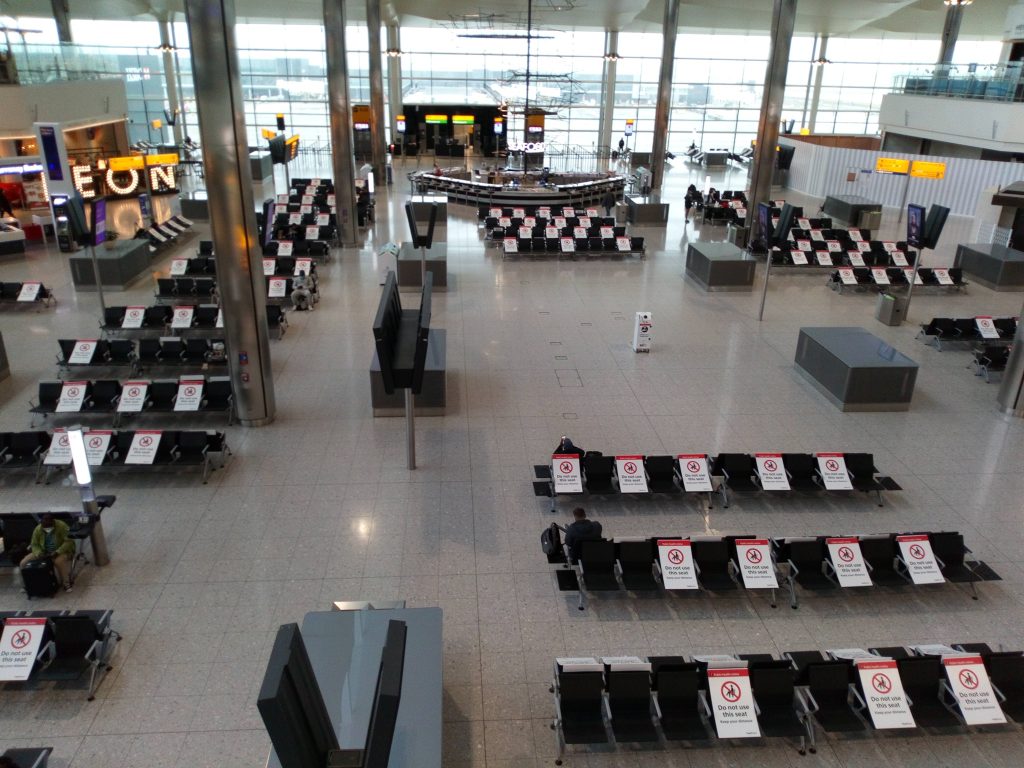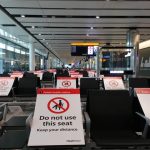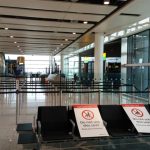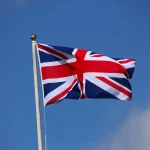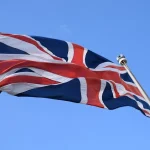At the end of December, I went to the UK to spend Christmas there and deal with some urgent and pressing matters which unfortunately couldn’t wait. I had a bad feeling about it, but went ahead anyway as for some things, time wasn’t on my side.
I left on the 20th of December on what turned out to be the very last flight (Zagreb-London) which Croatia allowed to operate between the two countries as an initial 48 hour flight ban was introduced impulsively and suddenly as the news of the new ”British variant” of the novel coronavirus, referred to as VOC-202012/01 (also known as lineage B.1.1.7, 20I/501Y.V1), had been discovered circulating in southern Britain.
The new variant, a mutated strain, was believed to spread more quickly and efficiently, but not to cause a more severe clinical picture than the ”older version” of the novel coronavirus. Of course, a rapidly spreading pathogen causes issues even if the symptoms remain more or less the same, as hospital capacities fill even more quickly and the strain on the healthcare system becomes even more difficult to cope with. The need for extra caution was understood.
As soon as I landed at an empty Heathrow Terminal 5, which was all but devoid of life with the exception of me, a few other stragglers and some rather bored looking staff, my phone pinged, letting me know that Croatia had joined what was then a handful of other countries to place a sudden and temporary ban on passenger transport from the United Kingdom. It was initially for a mere 48 hours. Brilliant, I thought, as I stood waiting for my case breathing in the eye-watering smell of bleach which managed to penetrate my mask.
I read Plenkovic’s tweet, UK and Croatia flag emojis thrown in for good measure, and combed through the comments of disgruntled and angry people stuck on both sides of the English channel as they tore into the decision as my case and I wandered through the empty baggage reclaim area to the exit.
”Given the new findings about the more rapid spread of COVID-19 in the United Kingdom, we’re going to temporarily end passenger transport from the UK out of caution for 48 hours, until we find out more precise information about this possible new variant of the virus. Our priority is the health of citizens”
I arrived to where I was meant to be following a journey through an empty, silent and eerie London, began my ten days of self-isolation and on the tenth day, the area I was in went into Tier 4, the then highest tier of the UK’s restriction system. A few days later, the entire country went into lockdown as cases rose, with over 1000 deaths recorded per day for a while. The country with the highest death toll in Europe was continuing down a deeply unwanted path.
Fast forward a few weeks and I begin planning to return from London to Zagreb as the situation calmed in Croatia, hoping to quickly make the journey before anything else altered within the blink of an eye, as has become so commonplace since the virus emerged.
I booked a Croatia Airlines flight for the 8th of February, leaving London for Zagreb at around 17:00. At that time, people entering Croatia with a reason or those with residence or Croatian citizenship (which applied in my case) could technically enter without presenting a negative PCR test which was no older than 48 hours as long as they tested immediately upon crossing the border, went into isolation and emailed their (hopefully) negative result to the border police, an email address which was provided to such passengers upon arrival.
Of course, having a negative PCR test in hand already was the more desirable situation, and back then, no self-isolation of any kind was needed if you could present that negative result upon arrival. Still, it was pleasant to see that the Croatian authorities recognised that this demand was difficult to achieve (other countries typically ask for 72 hours), and that they were willing to cut people some slack.
That quickly altered.
The new ”British variant” was gaining traction in southern England and forcing infection numbers to soar and the Croatian Institute of Public Health created a new list of countries. No longer was it just EEA and non EEA, but a list of countries with ”special epidemiological measures” applied to them. On the list back then were the United Kingdom and South Africa, which had its ”own” concerning variant, with the later addition of Brazil.
For those countries, a PCR test no older than 48 hours was needed, accompanied by self-isolation for a period of 14 days with ”test to release” measures in place to cut the period of self-isolation short after seven days if, on the seventh day at the earliest, the person tests negative again at their own expense. This isn’t obligatory and you can just end your self-isolation without any more tests after 14 days if you so wish.
The 6th of February arrived and I called to book a PCR test for that evening. I arrived to the facility and underwent the test for the fourth time since the pandemic began. I had contracted coronavirus only several months before and was aware I’d more than likely return a negative result, but I did have some doubts as I saw the swab taken out of my throat and nose and pushed into the red liquid in the test tube and sent away to the lab. Just 18 or so hours later on the 7th, my negative result arrived in the form of a text and an email.
Obstacle one was dealt with.
I went to check in online on Croatia Airlines’ website, only to be hit with what is obviously an outdated and very, very poorly thought out message that ”flights are banned” until the 15th of February from the UK to Croatia. This of course isn’t true at all for essential travel and I immediately realised that it simply meant I’d have to go to the check-in desk in person upon arrival as they’d need to see a reason as to why I was travelling, and if I had a right to do so as the UK remained in lockdown with a ”stay at home” order in place. Although I understood that, I’m not sure others who are less observant of the situation would.
Paying the price Croatia Airlines wants for a very, very basic less than two hour flight from London to Zagreb (and the same is indeed true in the other direction, which is thankfully a trip I only make twice per year) and then being hit with a ”flight ban” message isn’t really ideal. Would it be so hard to issue a message stating that online check-in simply isn’t currently available rather than inciting yet more confusion? Obviously.
On the 8th, I made the journey to Heathrow and prepared myself mentally for some more potential issues. Here’s where things were impressive and I have to take my hat off to Britain (which is something I do seldomly). Both its rate of vaccination (there were over 10 million people vaccinated at the time of writing this, more than twice Croatia’s entire population) and its proper and efficient checks on travel seem to be second to none.
I saw a few people told they couldn’t fly from London to Zagreb due to having incorrect documentation, which must have been devastating, as a staff member called me to a check-in desk.
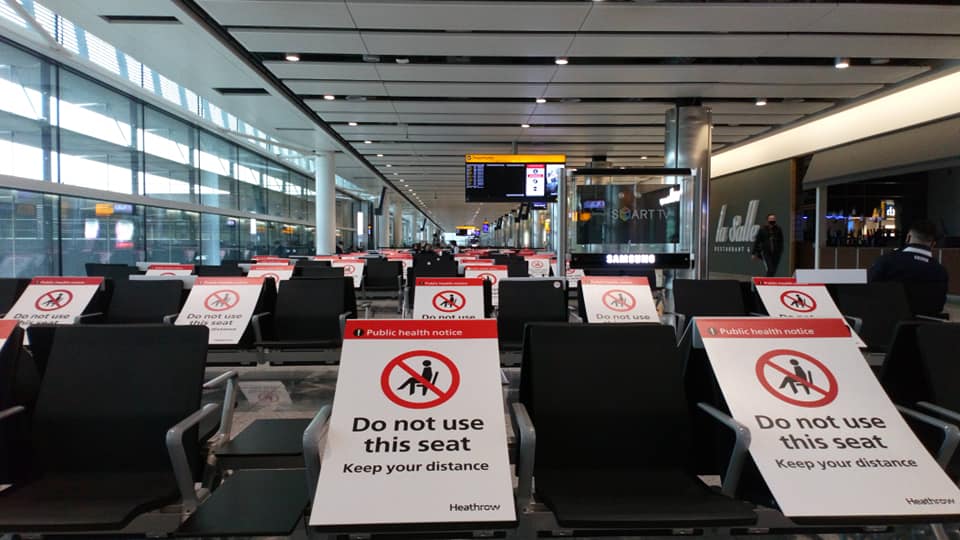
I presented a British passport and a Croatian ID card and he went to have it checked, 2 minutes later he returned saying that it was fine, sending my suitcase off to the plane as I went to the empty security. Passing through in 3 minutes (which is unheard of at Heathrow) and entering the empty departure lounge to await my flight.
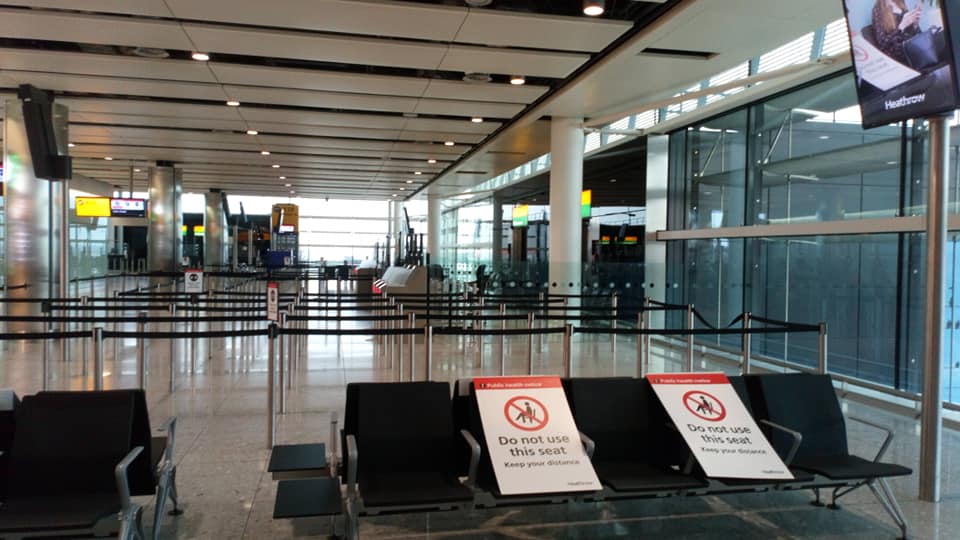
As the gate for Zagreb was announced and the handful of people boarding the plane gathered, passports, ID cards and PCR test documents in hand, staff demanded negative tests before anyone could board the flight. Each person appeared to have an issue or two as boarding staff rushed back and forth from passenger to phone, calling the authorities to ask questions which were obviously not made properly clear. Some people were convinced they didn’t need a test to enter, referencing the previous rule which stated that a PCR test could instead be obtained upon arrival, which now no longer applied to anyone (regardless of their status or citizenship) coming directly from the UK. Others had expired test results as 48 hours is difficult to achieve in many places across the UK due to demand.
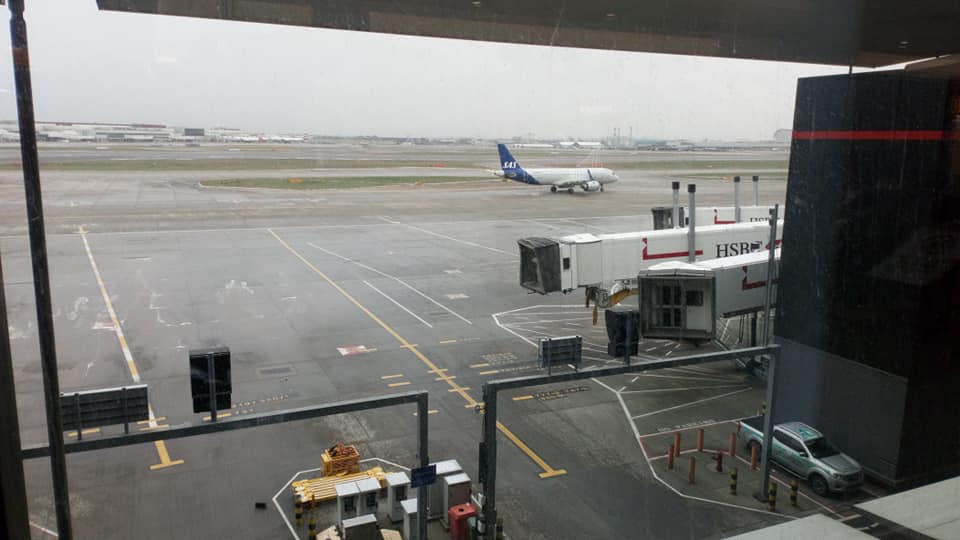
The boarding staff kept calling the authorities, heading back to passengers, back to the phone, and looking very flushed. They then asked for ”Enter Croatia” forms which don’t need to be filled in if you’re a citizen or a legal resident, but the staff had to take passengers’ words for that as it was indeed as clear as mud. Ah, Croatia.
The process was very long, one woman was nearly denied boarding until a phone call from the authorities allowed her to enter Croatia despite some sort of issue with her PCR test. The phone kept on ringing and Heathrow’s poor staff continued to look more and more confused as rules seemed to be interpreted differently by each and every person. Ah, Croatia. Again.
The plane took off after de-icing as it was snowing in England, air stewards handed out and then took back Passenger Locator Forms, and we landed in Zagreb just under two hours later. Usually, the border procedure is fast at Zagreb Airport, regardless of how busy it is. This time, despite the relatively few people travelling, we were stuck there for an hour. Frustrated people called taxis, family and friends waiting to pick them up to apologise repeatedly as only two border police were (very slowly) facilitating entry to passengers, with the occasional appearance of one or two others who came and went of their own accord.
One policewoman struck up a conversation with me because an apparently ”fast-track smart border” device had broken, that very device was supposed to be used by precisely those people coming from London to Zagreb that day. We spoke in Croatian as she used my passports to try to see if it would work. It didn’t. She was pleasant and it passed the time a bit quicker as she complained about the new technology and joked light-heartedly about the self-isolation measures. Each and every person arriving experienced issues because of their PCR tests, but were let in following repeated documentation checks as their mandatory self-isolation was on the cards anyway.
Upon finally arriving to the competent border guard, the surprisingly smiley and cheerful man took my documents and asked for my PCR test. He appeared confused by it, despite being well intentioned, and I had to explain in Croatian what each part meant. He appeared surprised by my willingness to explain and joked that this was all so difficult to follow. His exhaustion with the rules he must keep up with showed for a second or two before his cheerfulness returned, telling me that was all fine with a slight Dalmatian twang, copying the papers I gave him and asking me if I wanted my instructions for the removal of my self-isolation measure in Croatian or English.
”Svejedno mi je” I said. (Either of them, it doesn’t matter to me), to which he provided both versions and waved me through, looking happy that his day dealing with often confused arrivals from countries with ”special epidemiological measures” applied to them was almost over.
The 5 or 6 people left by that point in time in Zagreb Airport took their bags, sitting rather sadly on the now motionless carousel and exited, happy to remove their masks and breathe in the fresh, cold winter air outside after hours stuck in oxygen-poor queues and on planes.
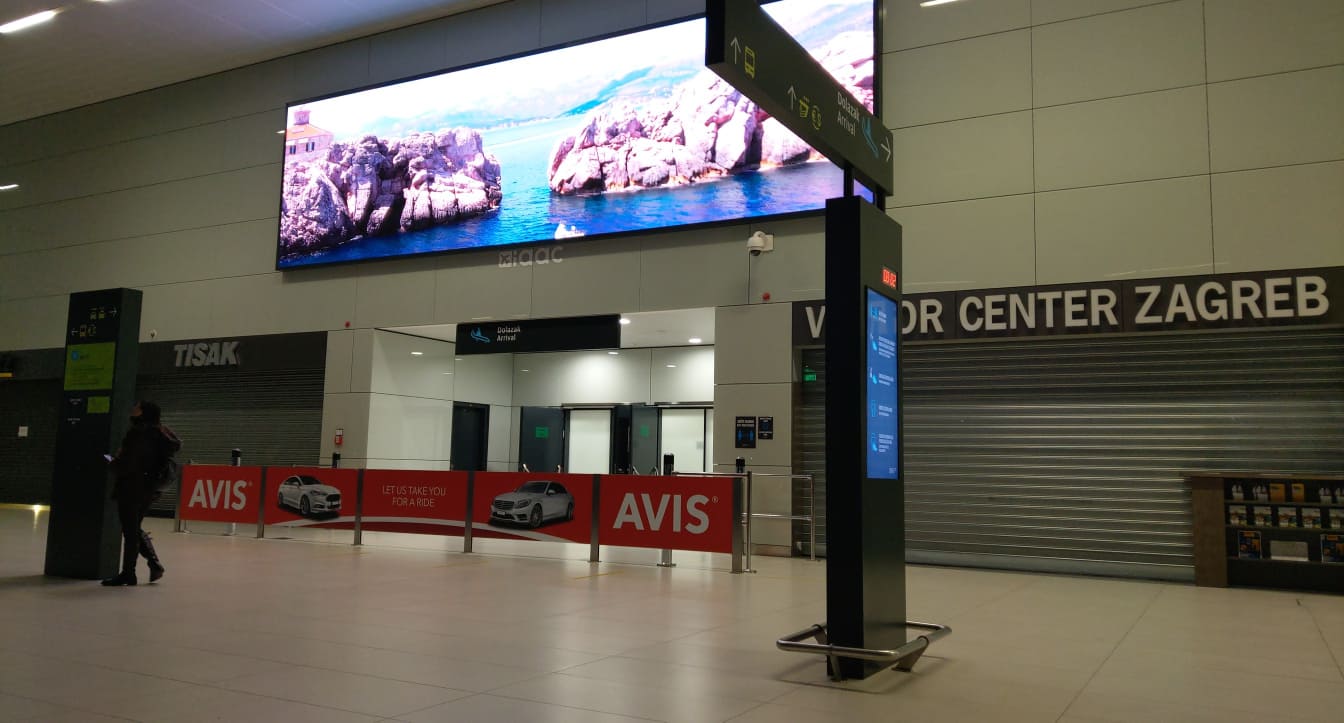
All in all, the process was pleasant given the amount of stress actually involved. Heathrow did excellently, but Croatia and Croatia Airlines could improve on several things. Simply say that online check-in isn’t available during lockdown rather than selling basic one-way flights at what truly are often extortionate prices and then issuing a very wrong message when people naturally attempt to check in online.
Croatia is continuing to deal with the pandemic excellently, dragging the infection and death rate down enormously in just a matter of weeks, and it is more than obvious that this 48 hour PCR test requirement (48 hours from the swab having been taken, not from the result!) is in place to make it as difficult as possible and to make even essential travel for citizens and residents problematic. The majority of other comparable countries ask for that time window to be 72 hours, which is much more reasonable and attainable.
Some institutions which do PCR tests in the UK do not expilicitly state that the test which has been done is a PCR test as this is typically implied. If you have a rapid antigen test or a lateral flow test, it will state in your result what that test is, but a ”coronavirus test” in the UK implies that it is PCR in the vast majority of cases. Of course, some places which do them will write much more on the result, but others won’t, and it’s impossible for you to know that beforehand.
It would be beneficial for Croatia, people making essential journeys between the two countries and indeed airport staff who have been swept up into this to look more into what the procedures the country they’re placing further restrictions on actually look like so as to avoid such confusion.
The 48 hour window is, as stated, a bit of a challenge most of the time. I spoke to a man standing near me at the border who had to travel from Wales to London two days before and pay for a hotel in order to obtain his PCR test at Heathrow on time for his flight, costing him far more time and money than is needed. His test more than likely expired during the border procedure as most of ours had done. Surely it would be better to ask for a window of time a little bit longer rather than to demand something you actually do not allow to be fulfilled because the queues are too long, the rules are too easily misunderstood and there are only two guards working?
It is quite typical of Croatia to ask for something that either doesn’t exist, is difficult to acheive or is actually prevented from being fulfilled by Croatia itself.
To end this London to Zagreb saga on a positive note, it was nice to see that there was a level of understanding and flexibility from the border police, and even real friendliness, which offered the message that they are as fed up as we all are with this seemingly endless situation. It’s difficult to imagine that for the last seven years I have caught God knows how many flights from London to Zagreb and back again for next to no money and with zero issues (I miss you, British Airways!). Let’s hope that if and when that ease of travel returns we’ll learn to appreciate it that much more.
For the latest travel info, bookmark our main travel info article, which is updated daily.
Read the Croatian Travel Update in your language – now available in 24 languages.
Join the Total Croatia Travel INFO Viber community.

